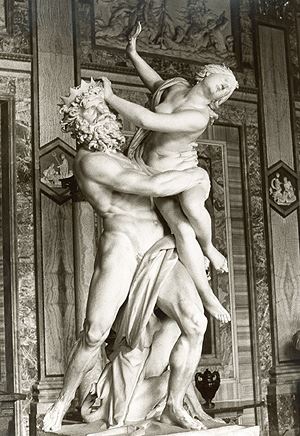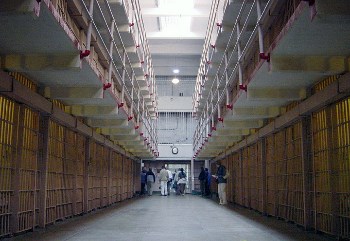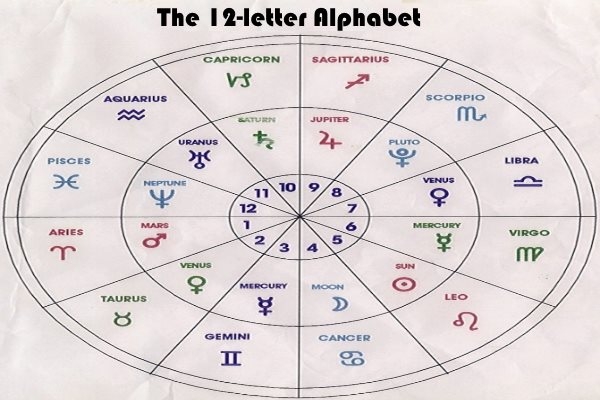7th House
If the First House is oneself, then the Seventh House is the Other – all kinds of others. If one has a question about a significant other, the person asking the question is signified by the First House and the person asked about is signified by the Seventh House. Depending on the situation, a significant other may be one’s lover (hypothetical or real), marriage partner, best friend, or the other party in a contractual transaction in which you are involved – a buyer if you’re selling, a creditor if you are borrowing. A significant other may be also an opponent – in sport, politics, or war. Although concord and harmony make for better karma in the long run, Libra and its governing planet Venus are not the always the best match.
Libra and its ruler Venus is as out of place with respect to the Seventh House as Aries and its ruler Mars is to the First House – both deny the variety of life-situations of oneself and with other (Seventh House). There’s clearly a resemblance between the 7th place of enemies and married or relationship partners. And Libra, the air cardinal sign governed by Venus, has themes of partnership and mutuality. But then you’re stuck with having to align Libra and Venus with one’s adversaries!
8th House (Scorpio, Mars, Pluto)
This one must be taken apart piece by piece, for everything is wrong about how the Eighth House has been depicted by modern astrologers.
 The Eighth House, like the Sixth (and the Twelfth that I will discuss shortly), is unconnected to the Ascendant and represents some kind of undoing. In this case it is death and the manner of death that is the undoing. In ancient times this place was called “Idle,” for planets there did not live up to their potential. In the other wheel of houses that liken the First House to Saturn, the Eighth House affiliates with Saturn. The Eighth is just not a happy place. Medieval astrologers did give the Eighth some life by attributing to it a partner’s money (as the Second House from the Seventh House), but that seems a small improvement on the basic meaning of the Eighth.
The Eighth House, like the Sixth (and the Twelfth that I will discuss shortly), is unconnected to the Ascendant and represents some kind of undoing. In this case it is death and the manner of death that is the undoing. In ancient times this place was called “Idle,” for planets there did not live up to their potential. In the other wheel of houses that liken the First House to Saturn, the Eighth House affiliates with Saturn. The Eighth is just not a happy place. Medieval astrologers did give the Eighth some life by attributing to it a partner’s money (as the Second House from the Seventh House), but that seems a small improvement on the basic meaning of the Eighth.
None of the above is concerned with the fixed water sign Scorpio. Combining the deepening experience of the water element with the intransigence of a fixed mode, and its ruling planet Mars, Scorpio rightly has the attribution for hanging on, but it’s hanging on for dear life, not death. You might say, “But Scorpio could die for a worthy cause,” but that is from its intensity of devotion to larger purposes and a willingness to sacrifice oneself for them. Scorpio is also drily pragmatic – to quote General Patton with Sun in Scorpio, the soldier’s goal is not to die for one’s country but to get the enemy to die for his. Scorpio’s strong, fixed water drive often tends toward obsessiveness, resentment, and even cruelty – but these are also manifestations of hanging onto life, not death.
The modern assimilation of Scorpio to death is a result of bringing in the outer planet Pluto, a planet that is cold, powerful, and brings intense experience and situations. Mars, the traditional ruler which manifests in ordinary life as Scorpio does—unlike the outer planet Pluto—is the more appropriate planet to govern Scorpio.
Is the Eighth a place of sexuality? Only accidentally, for along with Scorpio, the Eighth House was given the genitals as the body part of govern. Sexuality does cover a wider range than body parts and wider range of astrological possibilities than Scorpio or Mars. Linking Pluto with sexuality seems a particularly bad idea, for Pluto’s version of sexuality is closer to rape (as in the abduction of Persephone) than ordinary experiences of intense pleasure or the affirmation of romantic love.
Still less is the Eighth House – Scorpio – Mars or Pluto about transformation. Partly this is because we have an overly romantic notion of transformation. When we ask ourselves how real change occurs, it is either resulting from extraordinary – and usually painful — situations, or sometimes from incremental changes over a long time. In either case, they do not change us from one person into another, change our “form”, but instead bring about other dimensions of or the fulfillment of who we already are. We are not transformed – or different – but completed.
9th House (Sagittarius, Jupiter)
We tend to liken Jupiter to philosophy and religion and the attribution of Jupiter to the 9th House fits fairly well. (Jupiter is also the planet associated with the Ninth in the wheel of houses that begins with Saturn as the First.) The Ninth was the place of the “Sun God” in ancient astrology and was strongly associated with public religious practice; yet, like the Third, it was also associated with dreams, prophecy, and divination. The Ninth House being associated with higher education or long journeys is a later addition.
The planet in joy in the Ninth House is the Sun and, for a place that is cadent, the Ninth gets a lot of sunlight and the Sun can be happy here. It also fits well with the deification of the Sun’s power in many cosmologies and religions throughout history. It may also conform to the image of Sun as a planet of higher intellect, as the light of reason.
10th House (Capricorn, Saturn)
 Astrologers after my lifetime or yours will look at this affiliation with bewilderment. Archetypally mixing the House of career, reputation, and fame to Saturn and Capricorn is itself enough to throw out the entire Twelve Letter Alphabet system.
Astrologers after my lifetime or yours will look at this affiliation with bewilderment. Archetypally mixing the House of career, reputation, and fame to Saturn and Capricorn is itself enough to throw out the entire Twelve Letter Alphabet system.
You might retort, “But it’s the place of one’s boss!” I answer that there are many kinds of bosses and they’re not all oppressive. The dimensions of leadership and mentorship – solar and not saturnine factors – are prominent Tenth House factors.
The 10th is the traditional place of one’s “action” – career, calling, fame and reputation. I include a larger sense of “vocation”, so that if you work retail by day but are a political activist or animal rights advocate otherwise, the latter would be included within your Tenth House. If a “lifestyle” includes neighborhood vigilantism, being a “survivalist”, or attending a lot of funerals, that person’s Tenth House would qualify as Saturnine.
Capricorn, as the cardinal earth sign, governed by a heavy nocturnal (feminine sign) Saturn, and the place and time of least light in the Northern Hemisphere, is completely out of place in the public and daylight-filled Tenth. Because the Tenth is place of authority, it is far closer in meaning to the Sun than the gray planet Saturn.
11th House (Aquarius, Saturn, Uranus)
In ancient times the 11th, the “Place of the Good Spirit (or daimon)”, was a place of fortune and abundance. According to traditional sources Jupiter is in joy in the Eleventh, befitting a place that is considered so fortunate. (The Eleventh is the House opposite the 5th, the Place of Good Fortune and the joy of Venus, the other benefic.) The Eleventh House became the place of “hopes and wishes” and later the place of friendship and social groups; “hopes and wishes” is more in line with the original meaning of the Eleventh House.
Is this like the fixed air sign Aquarius? The “Water-Bearer” has a linear mental quality and a tendency to become conceptual that is not particularly like the Eleventh House in its original meanings. Aquarius is a sign of social responsibility and objective mind, and Aquarius relates well to a diurnal (masculine sign) Saturn that is a lighter Saturn than the one who governs Capricorn. However, if you confine the Eleventh House to friendships and social groups, the affiliation with the diurnal Saturn isn’t such a problem.
Things become much more confusing when astrologers mix up Aquarius with the outer planet Uranus, the planet of eccentricity, suddenness, and genius, and then try to bring in the Eleventh House. Uranus is quite different from the fixed mental “human” sign Aquarius. Uranus is rebellious, radically individualistic, and is deliberately outside convention. Aquarius, the sign opposite Leo, is humanitarian and oriented more toward groups and cultures than individuals. To bring this confusion to the Eleventh House only makes this problem worse; it obscures the original benevolent and protective quality of this house which is well demonstrated by Jupiter’s traditional association.
12th House (Pisces, Jupiter, Neptune)
 There are many difficulties here, and many are based on the distorted ways that the sign Pisces has been defined. But first let’s look at the Twelfth House by itself.
There are many difficulties here, and many are based on the distorted ways that the sign Pisces has been defined. But first let’s look at the Twelfth House by itself.
Like the Sixth and Eighth, the Twelfth is also disconnected to the Ascendant and is also a place about life’s difficulties. The Twelfth is a cadent house that in ancient astrology was the Place of the “Bad Spirit.” In the outer world the Twelfth is where we locate prisons, confinement in institutions, and dark hidden places. More internally, this is the place of being haunted – by previous karma, psychological “unfinished business,” and other manners of “self-doing” that come about because of what we cannot see. Psychological astrologers have looked to the Twelfth House for unacknowledged factors that may wreak havoc on one’s person and within one’s relationships. This is in keeping with the qualities of this house.
This all seems very different from the mutable watery sign Pisces that is flowing, changeable, and can develop different disguises for its personal and social roles. Pisces, as a quality of mind, has a strongly intuitive nonlinear bent. Unlike the planet Neptune, however, natives with prominent Pisces placements manage to maintain their identity even if that identity is not well-defined. Both the sign Pisces and its purported ruler Neptune are a far cry from the vice grip many of have experienced when in conditions of external or internal confinement.
Jupiter, the great benefic and the traditional ruler of Pisces, is even farther away from the significations of the Twelfth House. Jupiter – especially in the feminine sign Pisces – brings intuition of possibilities that is often called “faith” or “hope”. The Twelfth, however, is where cold reality comes at us from behind often with harmful intent; it is far closer to Saturn than Jupiter. And Saturn is, of course, the “joy” of the Twelfth House.



